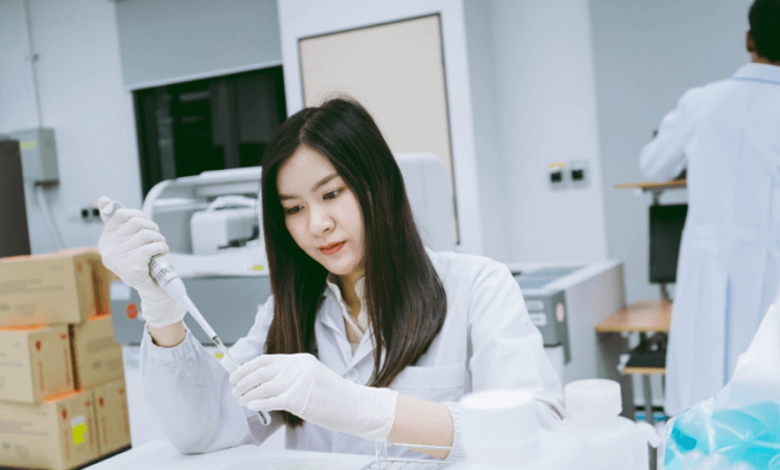Choosing the Right Lab Equipment Supplier: A Key Decision for Modern Laboratories

In the realm of scientific discovery, precision and reliability are everything. From pharmaceutical breakthroughs to food safety testing and academic research, every successful experiment begins with one common factor: dependable lab equipment. But where does this critical gear come from? The answer lies in the hands of a reliable lab equipment supplier—a partner who doesn’t just deliver tools but enables accuracy, compliance, and performance.
In this article, we explore what makes a great lab equipment supplier, why this choice is pivotal for any laboratory, and how to ensure you’re choosing a partner that will contribute to your success, not hinder it.
The Role of a Lab Equipment Supplier in the Scientific Ecosystem
A lab equipment supplier serves as the bridge between manufacturers and end users. Their responsibility is to ensure laboratories of all types—academic, clinical, industrial, or environmental—have access to the right instruments at the right time.
Beyond simply delivering products, the best suppliers:
- Offer consultation on equipment selection
- Provide installation and calibration
- Deliver after-sales service and technical support
- Facilitate training for lab personnel
- Maintain inventory of spare parts and consumables
- Help labs meet regulatory requirements through certified equipment
The right supplier becomes an extension of your lab’s team, working behind the scenes to make sure your operations run smoothly and efficiently.
See also: The Essential Role of Medical Staffing Agencies in Modern Healthcare
Different Types of Labs, Different Needs
Not all labs require the same type of equipment, and a professional lab equipment supplier understands this. Some key lab types and their primary needs include:
🧪 Research & Development Labs
These labs require high-precision instruments for experiments, such as spectrophotometers, centrifuges, balances, and microscopes. Suppliers need to offer flexibility, fast delivery, and technical expertise.
🏥 Clinical & Diagnostic Labs
Labs in hospitals and diagnostic centers need reliable analyzers, centrifuges, hematology machines, and sample storage units. Certification and accuracy are critical here.
🧬 Biotech and Pharma Labs
Instruments like PCR machines, autoclaves, incubators, and analytical balances are essential. The supplier must support compliance with GMP and ISO standards.
🎓 Educational Labs
Affordability, durability, and ease of use are the top priorities. A good lab equipment supplier will offer cost-effective solutions and educational packages.
🌱 Environmental & Food Testing Labs
These labs rely on gas chromatographs, pH meters, moisture analyzers, and water testing kits. The supplier should also offer documentation for regulatory submissions.
What Makes a Great Lab Equipment Supplier?
Choosing a trustworthy supplier involves more than scanning a product catalog. Here’s what distinguishes a high-quality lab equipment supplier from the rest:
1. Wide Product Selection
A reputable supplier will have a broad inventory of both general and specialized lab instruments, from basic glassware to high-tech analytical systems.
2. Partnership with Trusted Brands
Top suppliers work with globally recognized manufacturers known for their durability, precision, and safety standards.
3. Industry-Specific Knowledge
The best suppliers understand the specific demands of your industry and can recommend instruments that align with your workflow, compliance needs, and budget.
4. Certifications and Standards
A professional lab equipment supplier ensures their products are certified under international standards such as ISO, CE, RoHS, or FDA (for medical devices). These credentials help labs avoid compliance issues down the line.
5. Installation and Training
High-quality suppliers offer turnkey solutions. This includes not just delivering the equipment, but setting it up, calibrating it, and providing hands-on training to your staff.
6. Reliable After-Sales Service
Instruments occasionally break down or require calibration. A supplier that provides fast, effective service minimizes downtime and keeps your lab productive.
7. Transparent Pricing
A good supplier provides clear, competitive pricing with no hidden costs. They also offer warranties, service contracts, and financing options for larger purchases.
Digitalization and the Future of Lab Equipment Supply
The best lab equipment supplier today isn’t just managing warehouses—they’re innovating with technology. Here are some emerging trends:
✔ E-Commerce Platforms
Many suppliers now offer full online stores where labs can browse, compare, and purchase instruments with ease.
✔ Virtual Demos
Advanced tools like video demos, 3D modeling, and online simulations help labs evaluate equipment before committing.
✔ IoT and Smart Instruments
Modern lab devices can alert users of maintenance needs, upload data to cloud storage, or integrate with lab information management systems (LIMS). A tech-savvy supplier supports these innovations.
✔ Eco-Friendly Offerings
More suppliers are now offering energy-efficient instruments, recyclable packaging, and sustainable sourcing practices.
Tips for Selecting the Right Lab Equipment Supplier
Here are practical steps to take when evaluating your next supplier:
- Request Case Studies or References
Ask for testimonials from other labs in your industry to get a sense of service quality and reliability. - Check Certifications and Authorizations
Ensure the supplier is authorized to sell and service the brands they offer. Verify the certifications of their instruments. - Evaluate Technical Expertise
Ask whether they offer support for installation, calibration, training, and repairs. A true partner won’t leave you after the sale. - Assess Inventory and Lead Time
Suppliers with sufficient stock and logistics capability can prevent frustrating delays. - Ask About Customization
Some labs need specialized setups. A responsive lab equipment supplier should be able to accommodate custom requests.
Case Study: A Lab’s Journey with the Right Supplier
Dr. Kamran, a quality control manager at a food testing laboratory in the Middle East, struggled with delays and inaccurate readings due to faulty equipment sourced from a low-cost distributor. After switching to a verified lab equipment supplier, his lab received proper installations, user training, and round-the-clock support. Turnaround times dropped by 35%, and customer satisfaction improved dramatically.
This example highlights how the right supplier can directly impact your lab’s efficiency, accuracy, and reputation.
Red Flags to Watch Out For
Avoid suppliers that:
- Offer only generic equipment with no brand backing
- Do not provide clear documentation or certifications
- Lack post-sale support
- Push you to purchase without understanding your needs
- Provide poor communication or delayed responses
The cost of choosing the wrong lab equipment supplier can go beyond money—it can cost you trust, time, and data integrity.
Conclusion: A Supplier is a Partner in Progress
A dependable lab equipment supplier is not just a vendor; they are a crucial part of your lab’s success story. From helping you choose the right instruments to offering long-term support, they contribute to accuracy, compliance, and operational excellence.
As science continues to evolve, laboratories need more than just tools—they need dependable partnerships. By choosing a supplier that understands your goals and respects your standards, you empower your lab to reach new levels of precision and productivity.





